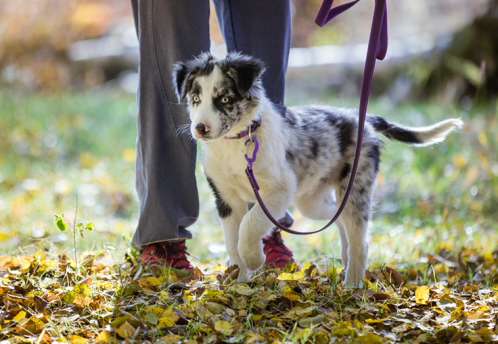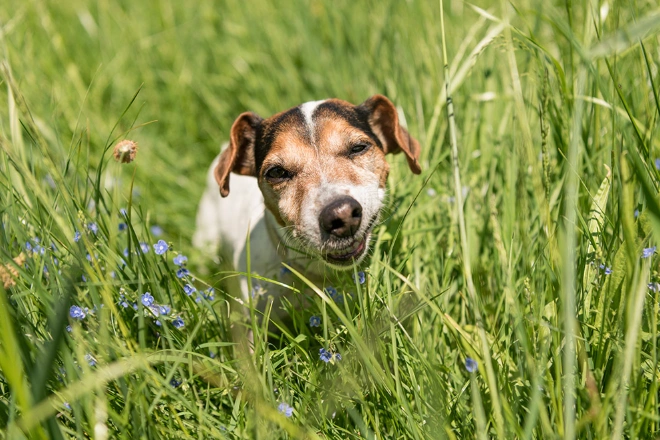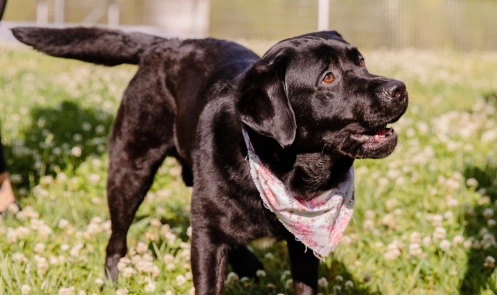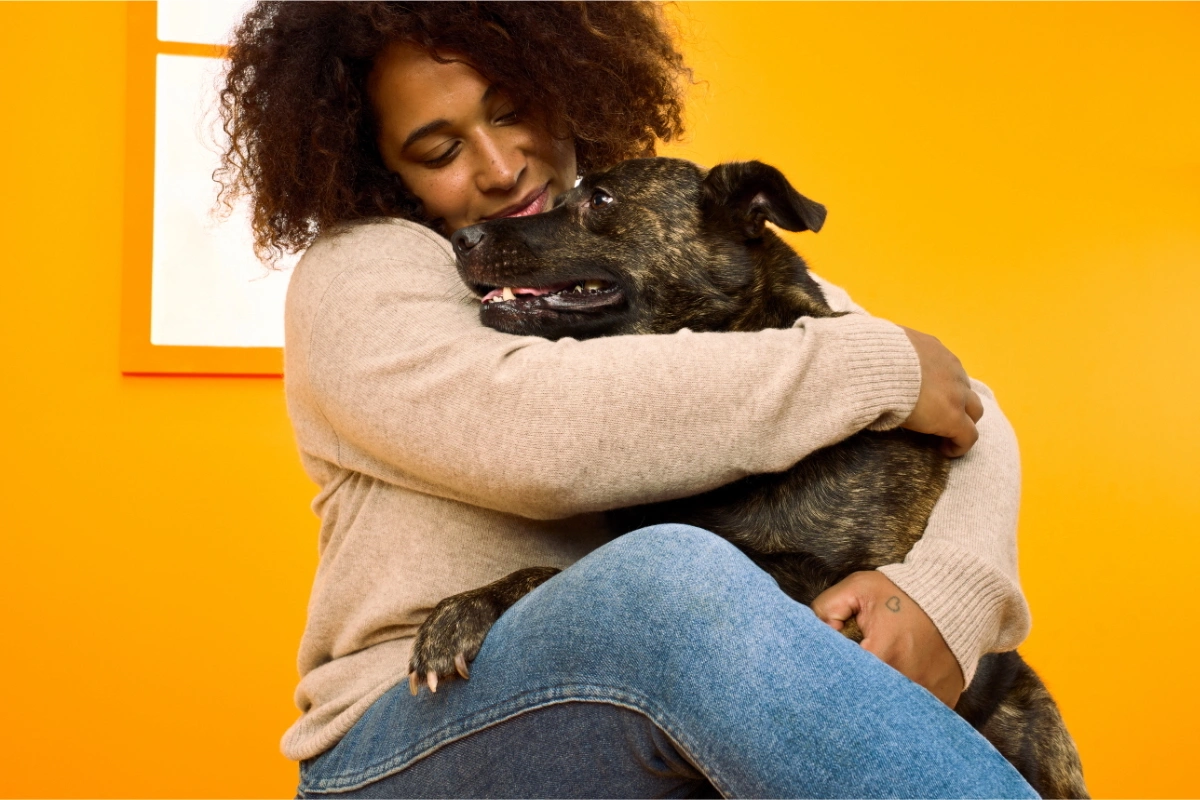You’re out on a walk or at the park with your dog when you notice them chomping on… wait, is that grass? And just grass?
Chances are, this isn’t the first time you’ve noticed them nibbling on the lawn. It’s natural for this behavior to leave you wondering — Why does my dog eat grass?
Dogs’ attraction to eating grass may be traced back to their closest relative, the wolf. A 2008 study from the University of California, Davis, notes that, despite the lack of research on grass-eating domestic pets, wild dogs in nature consume plants and grass. The UC Davis study found that plant material in the waste and stomach contents of cougars and wolves ranged from 2 - 74%.
Thus, it may be that dogs are prone to eating grass because it is written into their evolutionary genes. When wolves and other wild canines consume their catch, they tend to eat everything: meat, bones, fur, and whatever the animal had in its stomach, often grass or plant-based material. It may also be a method by which these wild animals effectively remove intestinal parasites. As the grass pushes through the intestines and progresses through the upper and lower digestive systems, it eliminates these parasites.
The answer might just be instinct. In most cases there is no clear reason why dogs eat grass, but it has been found to be an incredibly common behavior that is generally seen as normal, especially among our more youthful companions.
However, veterinarians and researchers are still learning what else may be behind this plant-eating behavior, and there appear to be a handful of possible reasons why grass-grazing is more than just natural for dogs.
Other reasons dogs might eat grass
The compulsive desire to eat non-food items, like grass, is what is known in the veterinary world as pica. In dogs, pica can be associated with a variety of non-food items, and can develop for dietary, medical and behavioral reasons.
Dietary Reasons for Dogs Eating Grass
One speculated reason dogs eat grass is because they’re seeking to fulfill a dietary need that they’re otherwise not getting. However, when dogs are on a nutritionally balanced diet (like ours), it doesn’t seem like grass could really provide them with something more.
Remember though — dogs aren’t carnivores alone, and they benefit from plant-based foods. While grass isn’t overly nutrient dense, it is full of fiber, and there has actually been a recorded case in which a high fiber diet put an end to a poodle’s grass eating behavior. So it could be that our grass-grazing pups are seeking the benefits of fiber. Though grass hardly seems appealing to humans, it does have different flavors and smells to dogs, some sweeter than others.
In reality though, your dog may also just be looking for a snack. A small study demonstrated that grass eating is a common behavior among healthy dogs, but is more likely to occur before your pup’s mealtime.
Medical Reasons for Dogs Eating Grass
Grass may in fact serve as a natural and readily available medicine for your dog.
Dogs may seek to eat grass to help induce vomiting if their stomach is feeling upset or a parasite has found its way in. In truth, grass consumption is not the most reliable way to induce vomiting, and while researchers aren’t convinced dogs do it for this reason, surveys have shown that a dog that’s not feeling well is more likely to throw up from grass consumption than their healthy counterpart.
Regardless, grazing may serve as a flag that your pup isn’t feeling 100%, so keep an eye out for other signs your dog isn’t at their best, and consider giving your vet a call.
Behavioral Reasons Your Dog Eats Grass
If there doesn’t appear to be any medical issues with your dog, yet they’re constantly munching on the yard, your dog may eat grass as a way to cope with being bored, stressed or anxious. It may also be something they learned from another dog that has since developed into a habit. Amazing creatures, aren’t they?
In these cases, it may help to distract your dog with extra exercise, chew toys and attention.
Should I stop my dog from eating grass?
Eating grass isn’t inherently dangerous to your pup, but lawn chemicals and pesticides may not be as friendly. So, it is probably best to not encourage this habit.
Likewise, too much grass may leave your pup with an upset stomach. But, one thing’s for sure, the occasional nibble is totally normal, and just your dog being in a dog. Only make sure they’re staying healthy and it doesn’t turn into a habit.
So why dogs truly eat grass remains a bit of a mystery. They may just like it, after all. And that’s good enough for us.



